We need more money, more people, and a greater understanding that "recovery is not a luxury": a report from the Rebuilding Ukraine conference
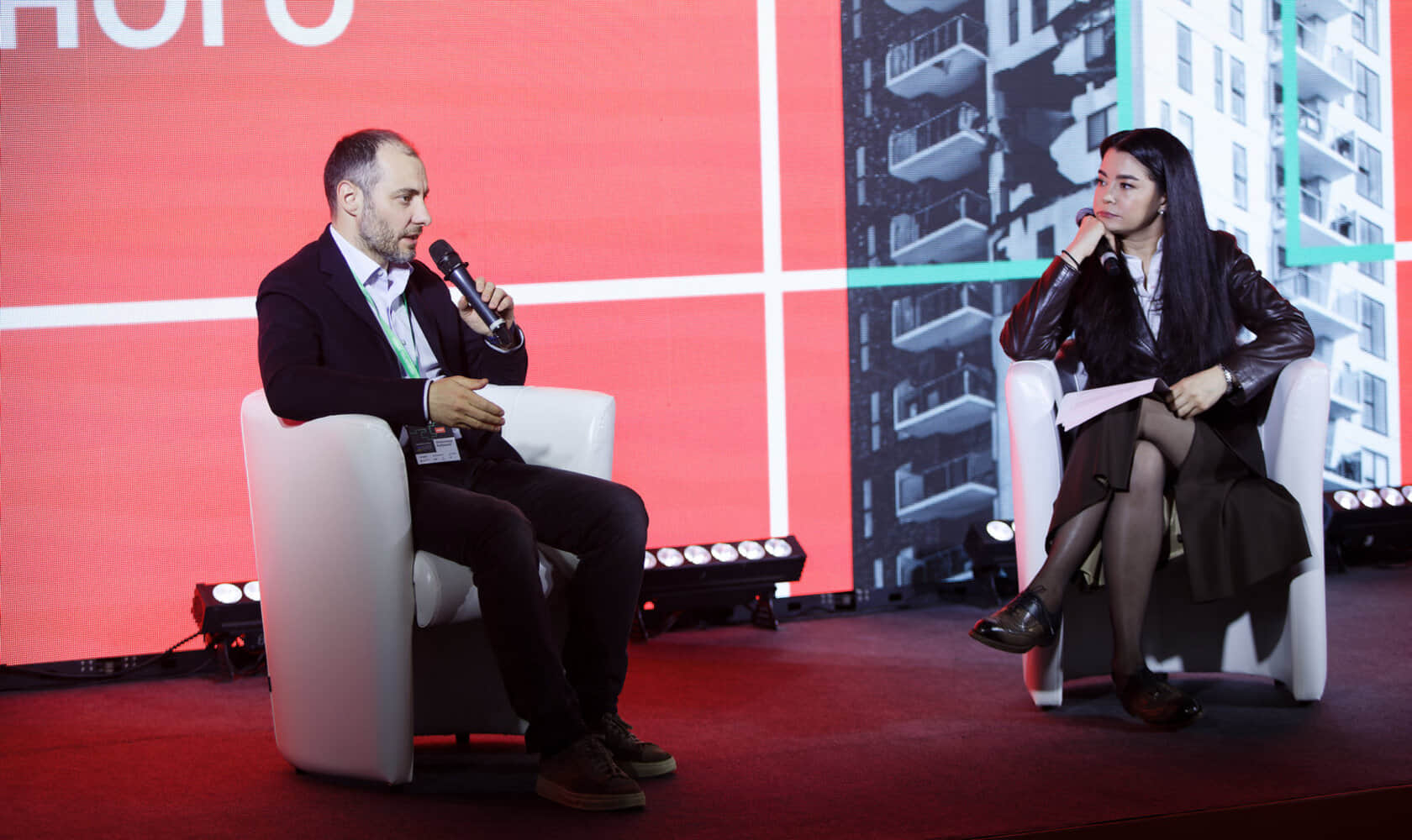
Ekonomichna Pravda, in conjunction with Ukraine’s Ministry for Communities, Territories and Infrastructure Development, held a conference entitled Rebuilding Ukraine: Why It Shouldn’t Be Postponed Until Victory.
Sevgil Musaieva, editor-in-chief of Ukrainska Pravda, spoke with Oleksandr Kubrakov, Deputy Prime Minister for Restoration, about the focus of rebuilding. Kubrakov said he hopes Ukraine will have time to partially repair the energy infrastructure damaged by the Russians before the new heating season starts.
"The Russians destroyed thermal generation in 2022 as well. It was partially repaired before the 2023-2024 season, and that’s one of the reasons why we managed to get through this winter," he said.
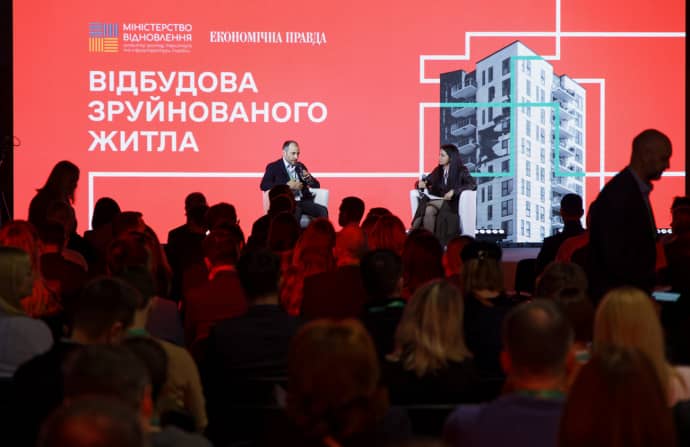
Kubrakov also stressed that all critical facilities must be protected by air defence systems so that the power engineers’ work is not in vain, and that the government hopes to receive assistance from partner countries in this particular matter. Constructing protective sarcophagi around facilities as large as thermal power plants is unreasonably expensive and time-consuming.
The government has kept spending on new construction, including roads and bridges, to a minimum during the full-scale war. However, there is not enough money for even basic road maintenance. Kubrakov said his ministry will be applying for additional funding to ensure traffic safety on main roads, including evacuation routes.
Sevgil Musaieva cited Denmark's assistance with reconstruction and its sponsorship of Mykolaiv Oblast as an example of success. Kubrakov noted that France and the Baltic states have been carrying out similar projects in other oblasts of Ukraine.
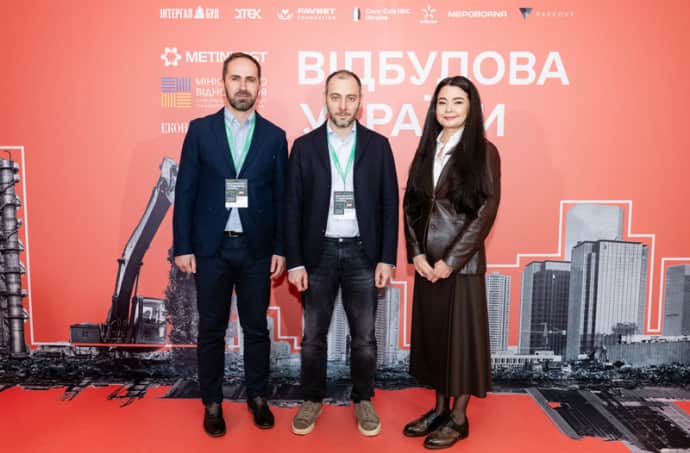
Rebuilding housing
At the first panel discussion, which focused on rebuilding housing, Olena Shuliak, leader of the Servant of the People party, reminded the audience of how the state started to tackle the problem of housing for Ukrainians from the very first days of the full-scale war, emphasising that the early decisions were made rapidly.
Payments under the eRecovery programme began in 2023 and housing certificates were issued in 2024. Shuliak said the need for housing far exceeds Ukraine's capacity, as Russia has destroyed over 50 million sq. m of apartments and houses. For instance, the authorities have received 50,000 applications for compensation just from residents of the temporarily occupied city of Mariupol, Donetsk Oblast. The strategic solution is to come up with a new approach to housing policy and develop pilot projects for the construction of social housing.
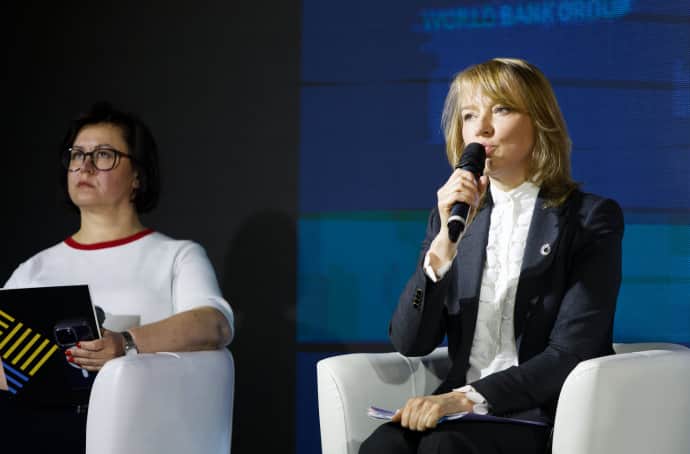
Citing research, Shuliak added that 90% of the building materials Ukraine will need for reconstruction could be produced in Ukraine. New production facilities will generate 100,000 jobs, US$16 billion in added value, and up to US$5 billion in taxes for Ukraine.
Sevara Melibaeva, Program Leader for Infrastructure and Sustainable Development for Eastern Europe at the World Bank, announced that Ukraine will receive an additional €60 million under the Housing Repair for People's Empowerment Project to rebuild houses and apartments. The programme is expected to benefit 100,000 Ukrainians.
Rebuilding resources
The second panel discussion focused on where the Ukrainian government and the private sector should look for money to carry out reconstruction projects for buildings damaged in Russian attacks. The discussion centred on energy infrastructure, which is a priority for the next heating season.
Matteo Patrone, Managing Director, Eastern Europe and the Caucasus at the European Bank for Reconstruction and Development (EBRD), explained how the EBRD is working with Ukrainian companies to develop decentralised generating capacity, including small gas turbines.
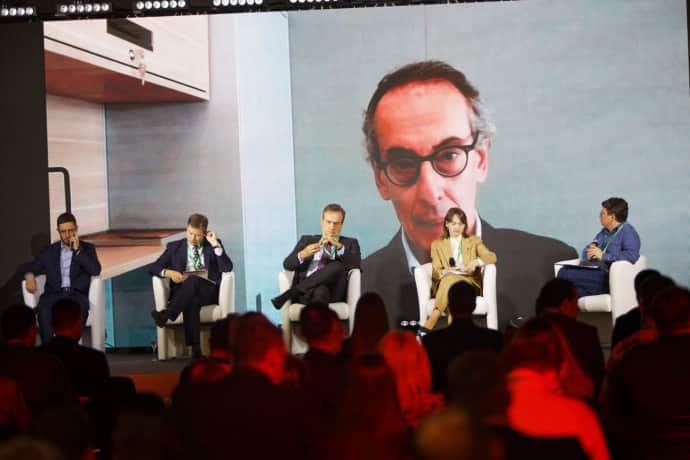
Work is also underway to protect the distribution network. "We are continuing our cooperation with Ukrenergo, the European Investment Bank (EIB) and the World Bank, and partially redirecting funds already allocated to accelerate the construction of second-level protection for transformers and substations," he said.
Patrone stressed the importance of actively involving the private sector, which has received half of all EBRD financing in Ukraine during the full-scale war, and without which the EBRD would not have been able to implement 73 projects during this time.
Jean-Erik de Zagon, Head of the EIB Regional Hub for Eastern Europe, stressed that resources are extremely limited, and therefore priorities in the rebuilding process need to be set. Working together with the government, these priorities have been identified as municipal infrastructure, transport infrastructure (especially export-oriented infrastructure), and energy infrastructure. De Zagon believes it is vital to rebuild infrastructure first and foremost: without it "there will be no recovery, because the private sector will not be able to work, and without hospitals, schools and houses, people will simply not stay".
De Zagon also said the EIB is willing to run projects in the frontline cities of Kherson and Kharkiv and is in contact with the local authorities of these cities, but it is very difficult to organise work there because Russian attacks make starting construction work a considerable challenge.
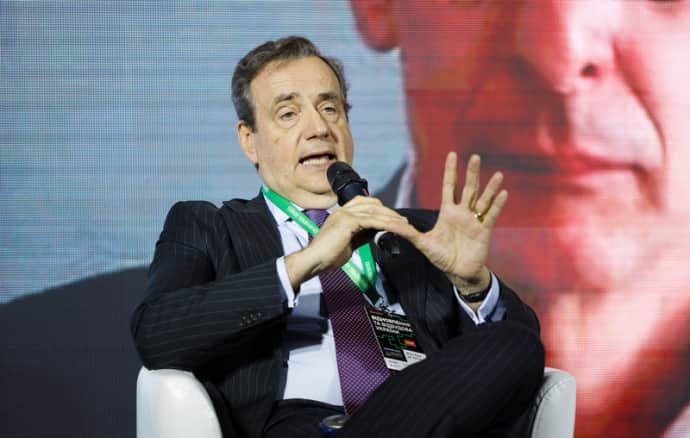
The needs of the energy sector are truly vast: DTEK Executive Director Dmytro Sakharuk said US$350 million is needed to restore the capacity lost due to Russian attacks on thermal power plants. Of this, US$250 million is the damage caused, and another US$100 million is required for repairs. These are due to start soon so that a certain amount of capacity can be restored by next winter.
DTEK covered last year's losses itself, but it is now considering various ways to raise funds – for example, by obtaining parts and components from European energy facilities, and accessing funding from the Ukraine Energy Support Fund and other donors such as USAID and JICA. One of the problems Sakharuk highlighted is that National Bank regulations do not allow the company to raise private funds abroad.
Jens Alsbirk, Deputy Head of Mission at the Royal Danish Embassy in Ukraine, whose country is sponsoring the reconstruction of Mykolaiv, also focused on business. The Danish government and Danish companies are currently working on humanitarian support for the city of Mykolaiv, supplying equipment, attracting investment and carrying out humanitarian mine clearance. In addition, long-term water and energy projects are being implemented in the city.
Alsbirk said the challenge was to attract Danish companies to work with Mykolaiv-based ones, as the former have no experience in the region and it can be difficult to persuade them to work in Mykolaiv.
Rebuilding infrastructure
The next panel focused on which facilities need to be reconstructed right now, with much of the discussion revolving around infrastructure. Yurii Vaskov, Deputy Minister for Communities, Territories and Infrastructure Development, said that more than 210 port infrastructure facilities have been completely or partially destroyed by Russian attacks. Most of them, he noted, have already been rebuilt.
The launch of civilian shipping in the Black Sea was one of the key achievements of the past year, but Mykhailo Rizak, Director for Government Relations at grain exporter Nibulon, said that a large number of its vessels remain blocked in the port of Mykolaiv, and the company is currently evacuating some of them.
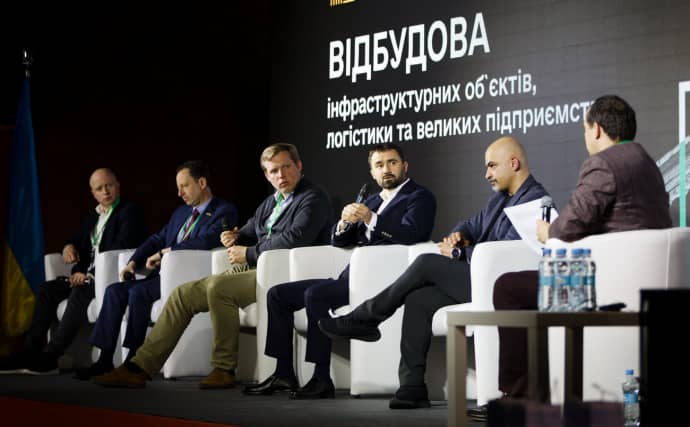
Mustafa Nayyem, Head of the State Agency for Restoration and Infrastructure Development, spoke about how energy facilities have been protected over the past year and a half. Initially the General Staff of the Armed Forces of Ukraine was in charge of protecting them, developing a methodology for protecting critical infrastructure from Russian bombardment. Subsequently, the construction of fortifications was decentralised, and responsibility for some facilities was handed over to the Agency for Restoration, while others remained with private operators, who have been given assistance in developing such solutions.
"Unfortunately, it seems to me that right from the start, not everyone paid attention to this, that it could be done. Not everyone believed it could. However, the first level of protection enabled us to reduce damage by 60% in just 3-4 months after the 2022 blackout," he said.
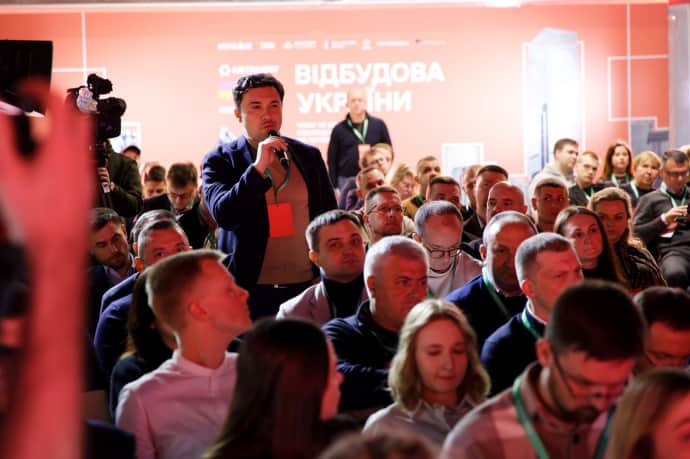
In the context of rebuilding in general, Nayyem stressed the importance of involving business in reconstruction and the private sector’s participation in public tenders, as the lion's share of construction companies are currently not doing that. "In times of reconstruction, when there is no money, when there are no resources, the private sector does not take part in public tenders," Nayyem added.
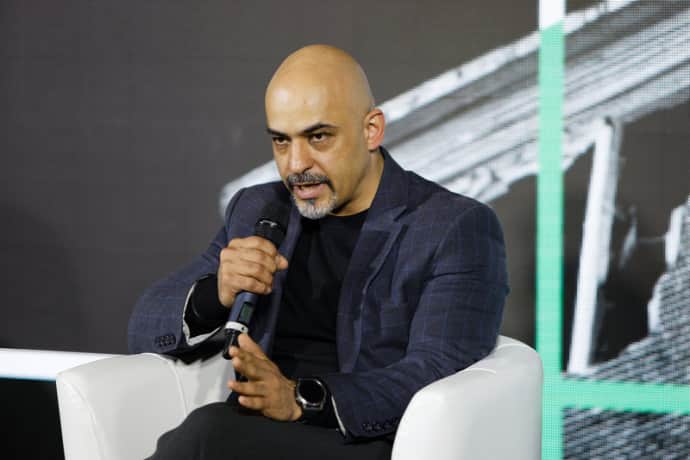
Nayyem also emphasised, referring to the rebuilding of infrastructure, that "recovery is not a luxury". In his opinion, the prevailing public sentiment is that now is not the time for rebuilding work. As a result, the industry is losing out on funding and suffering from a shortage of skilled workers, even though roads and logistics routes are vital for the country to function.
Metinvest Group was the lead sponsor of the event, together with DTEK, Kyivstar, Intergal-Bud, the FAVBET Foundation, Coca-Cola HBC Ukraine and NEPOBORNA.